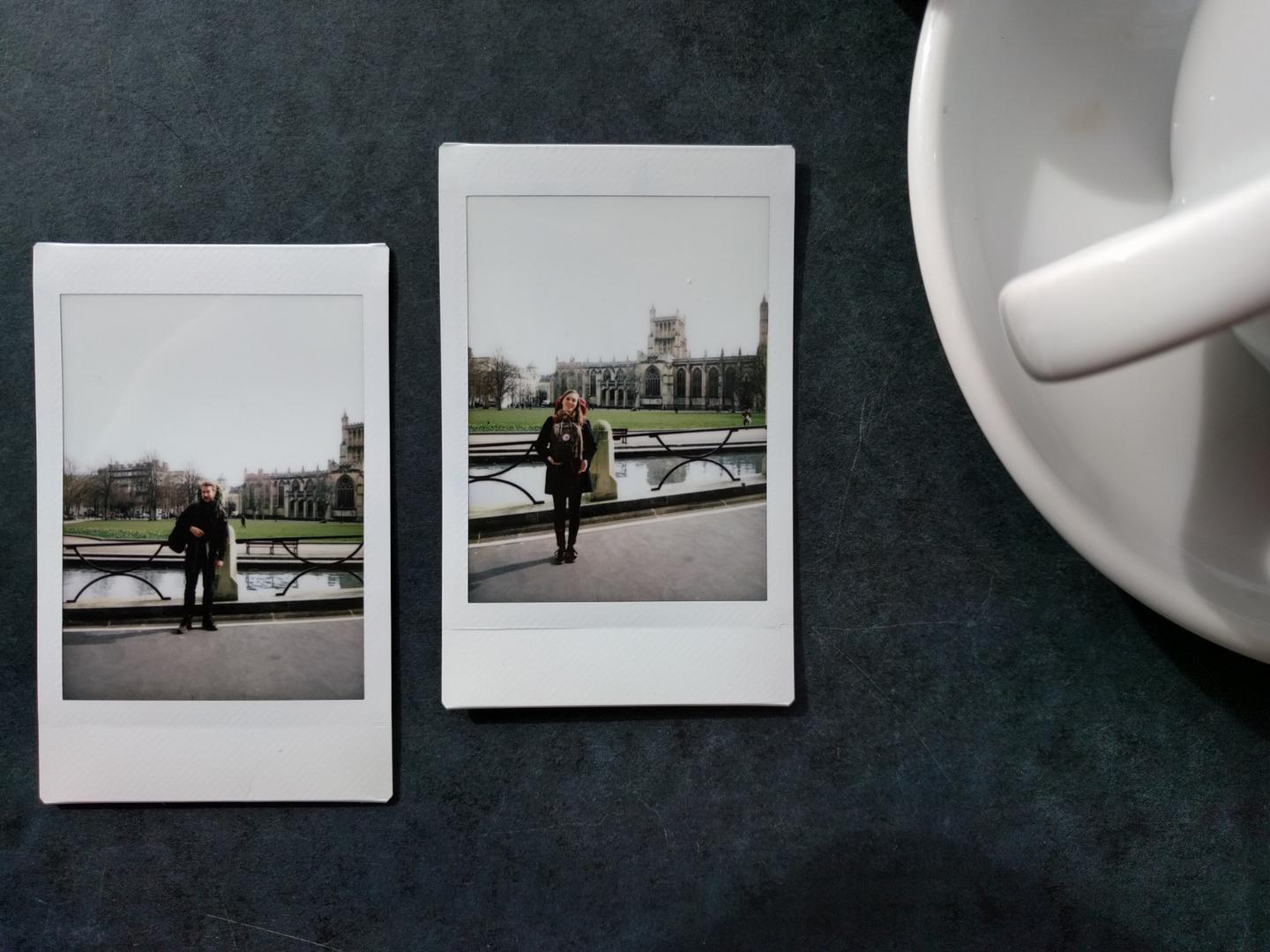Back from Data for Development Festival
Noemie and I (Thomas) were at the first instalment of Data for Development Festival in Bristol from March 21st to March 23rd.
What is Data for Development Festival?
It is the first instalment of an event produced by the Global Partnership for Sustainable Development Data. This organisation was created in 2015 to bring a data driven approach to the sustainable development goals adopted during the 70th session of the United Nations General Assembly. We can find health, energy, inequalities, cities and gender equality among these goals.
The Festival was a 3 days event with an international audience, panels, presentations and projects showcase.
We were present at the event as part of the projects showcase. We applied to the festival back in February.
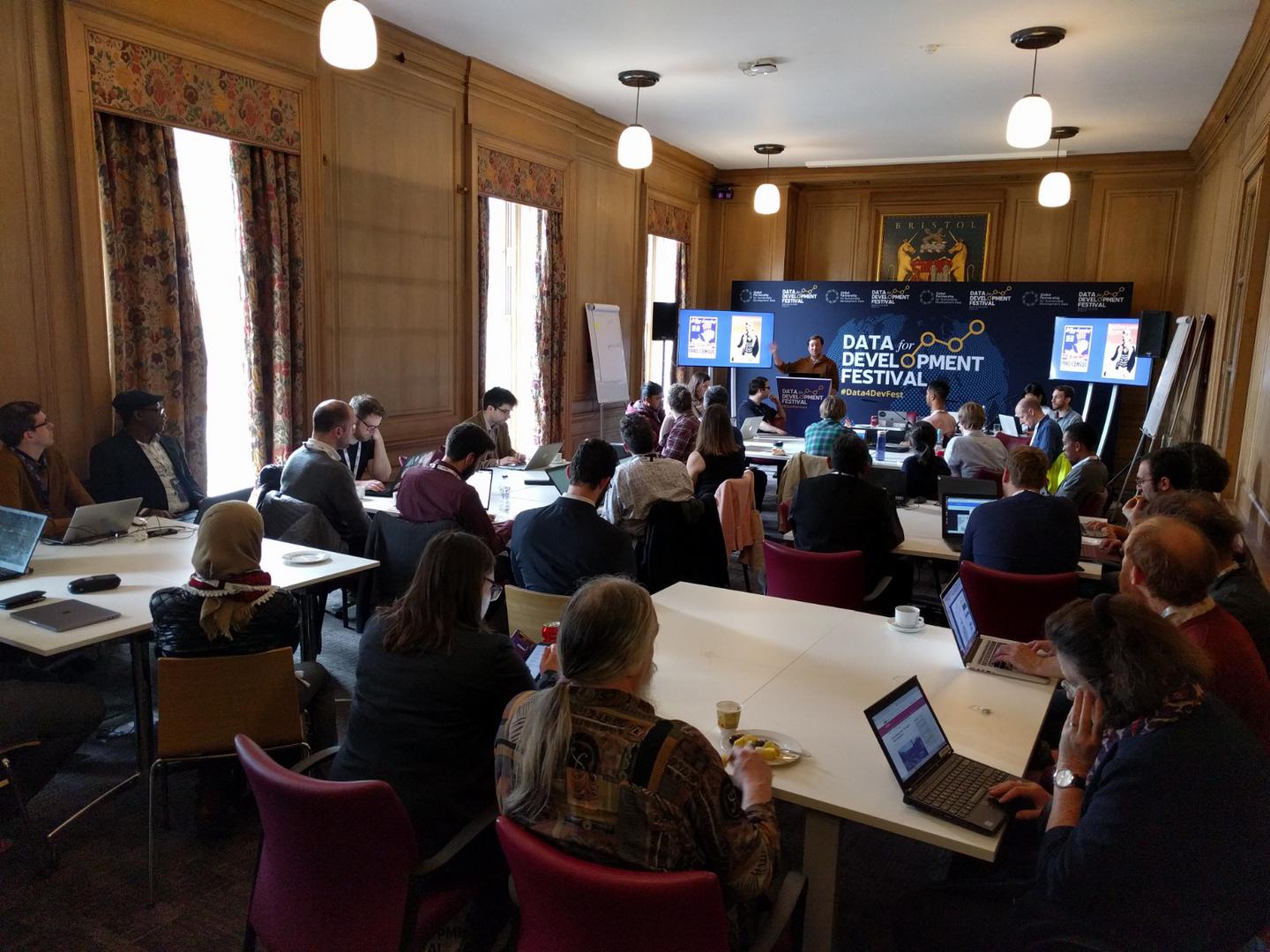
Project Showcase Setup
The format we were offered was 90 minutes on a standup booth, with a table and a large screen.
We thought of following a simple approach to present the project at the Festival: using the project website as a main material.
We redesigned the landing page of the website with this idea in mind. We used larger fonts, a responsive layout and more comprehensive texts for newcomers.
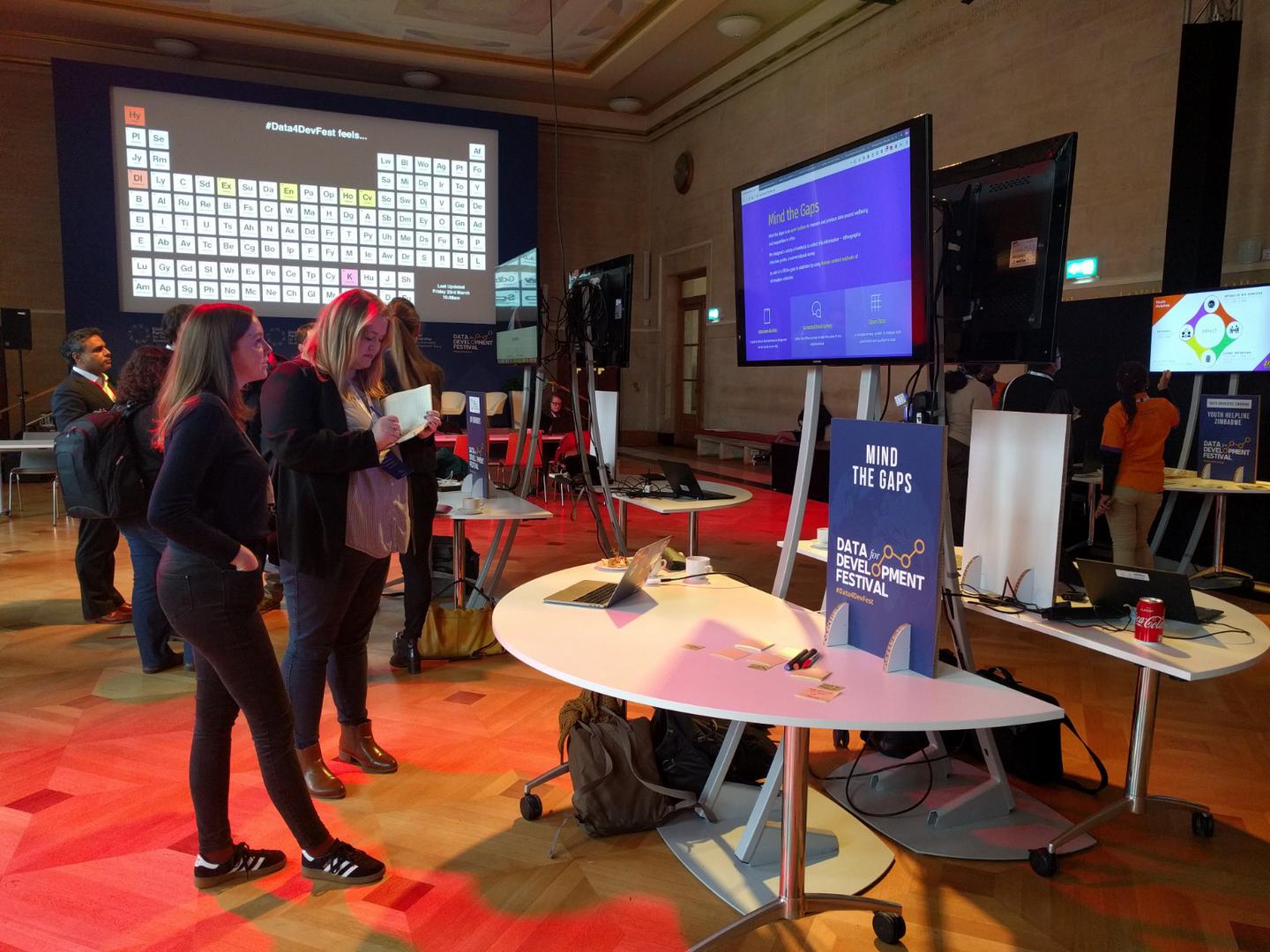
We opened a web browser private session in full screen and had a few tabs open in advance:
- the product page
- the research page — the content which was formerly the landing page
- Bristol survey question to highlight the nature of the questions
- a daily retrospective example
- the toolbox schema
We ended up disposing sticky notes and markers on the table, to enable hand written contributions. We used them to write down our email address so as people could take them in picture with their smartphones.
We will see if phone-taken pictures of email addresses generate more leads than regular business cards.
On a side note, we even contributed some code to the open source wawoff2 project. We wanted to embed web fonts and felt we could help speed up the conversion process by removing one step. Contribution accepted!
Insights and Lessons Learnt
We did not know much what to expect out of the event. We came back happy of the positive reinforcements we got from the various interactions.
Methodology
The process of customisation of the survey came up in nearly all of the conversations. We were asked how we did it and how it can be replicated. In which case, showing the research page was a relevant move. We see this as a prompt to develop the writing of the interview guide.
Our conversations with participants confirmed we would need to develop our capacity building: interviewers should as much as possible be from communities surveyed. How can we help them contextualise the interview guide and be non-leading, non-biased, equipped to answer questions?
The capacity building can be related to the tehcnical implementation itself. Students could run a survey without a prime ability to set it up on their own. In addition to a research methology, we could consider delivering a runbook to bootstrap the project in various conditions — from a minimal setup to hosting the data on your own.
We are open on finding financial resources to produce these documents and/or to train people on the field to be autonomous.
Biases and inclusivity
We have tried to design an inclusive process and to make Mind the Gaps bias-free.
Some festival participants happened to think the project would be a good system to address people that are usually not reached by online surveys. It will be important to emphasize the tradeoffs of each method (face to face interview, online questionnaire, group-based approach) so as they are chosen for the good reasons, for their qualities.
Bias is also something which can be induced by field work, by ethnographic researchers. The cultural context is something to be aware of. For example, men would not go as easily up to women in some arabic countries. In some neighbourhoods, our clothing would create a divide between us and the respondants. Diversity of interviewers is required in order to achieve representative results.
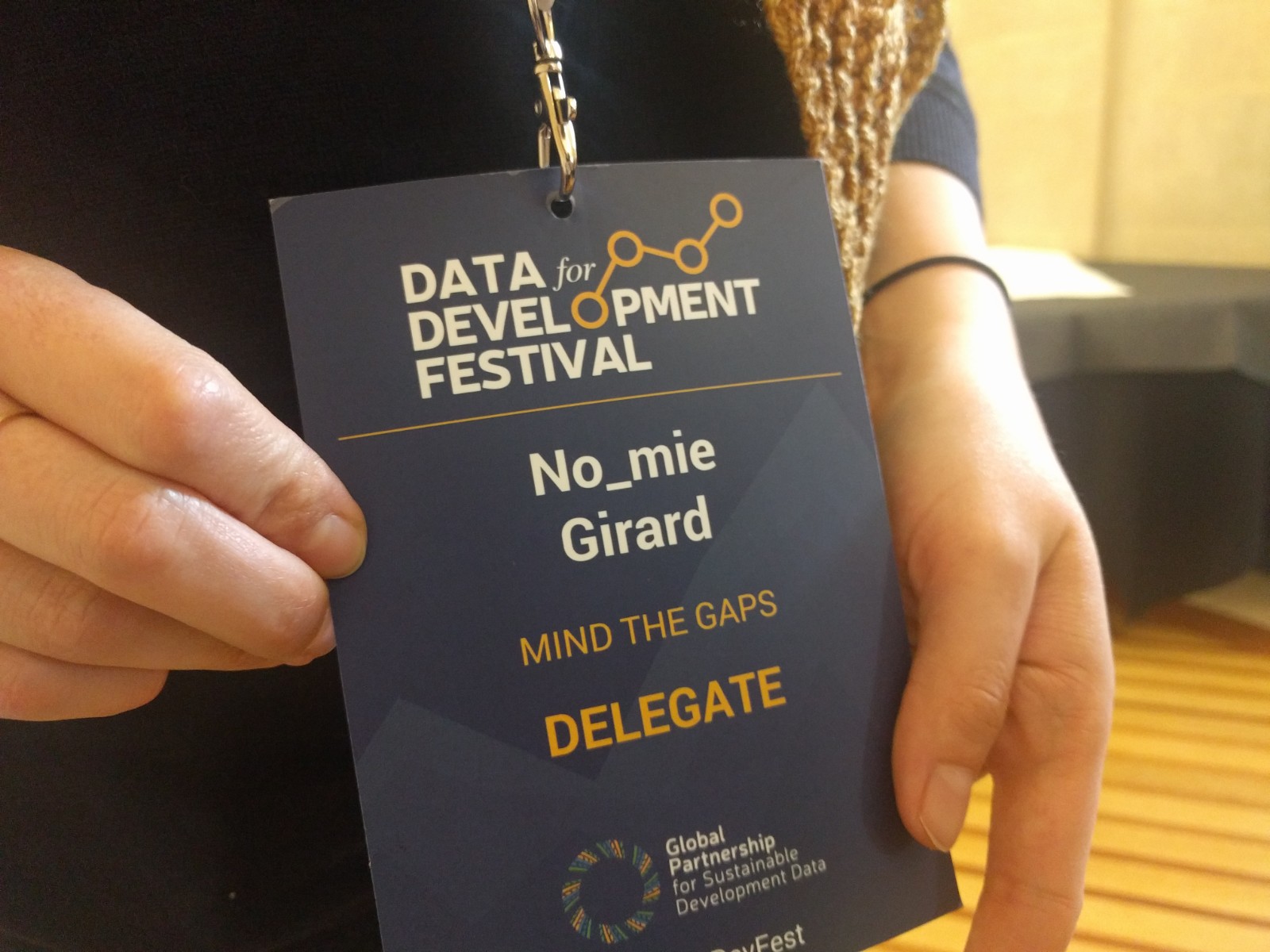
More than social inequalities
There is an opportunity to generate data about various forms of marginalisation because they are not well addressed by existing statistics.
This is especially true when they are endangered or put at risk to speak about the reason of their marginalisation (sexual preferences, religion, ethnic origins, etc.).
Next steps
Many asked us what are your next steps?
.
We replied we wanted to develop a survey v2 (more useable UI, better data structure), fleshing out questions, test with community organisations, visual insights and capacity building.
We were also asked if we would be interested in bringing Mind the Gaps in different languages, in rural areas and in developping countries. It is something we would be happy to do. It would be a case of making the system properly reusable.
Another question was if we were going to provide help with the data analysis? There are 2 answers to that:
- providing human readable analytics would definitely be part of the job
- with organisations like DataKind, it would be interesting to submit Mind the Gaps
The Humanitarian Exchange Language could be a sensible move to add SDG metadata to flag questions and answers relative to their development.
It would make a good case to submit the project to the Global Partnership Fellowship programme.
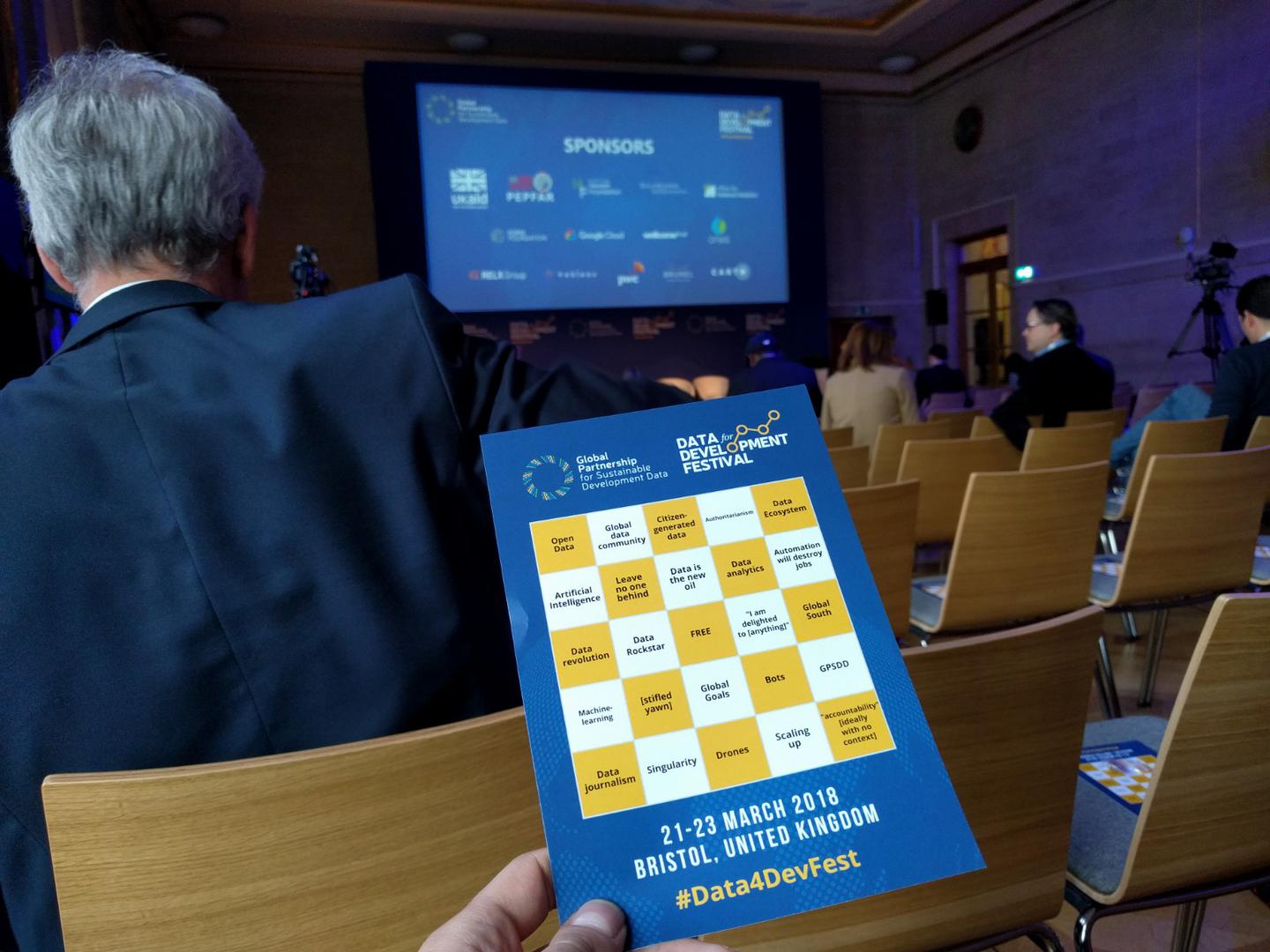
Notes on the Festival
We enjoyed the Festival was not Western centric. A lot of do-ers had good insights of the field whereas panels and presentations were better at addressing the organisation and financing side of things.
Pick our brain, not our pockets.
We spotted the risk paradox with regards to funding. Grants and fundings are allocation of moneys which originqte from private donors (wealthy persons, foundations, big corps special funds). Donors want the outcomes to be measurable. Fuzzy/research-y projects are harder to fund as they cannot be measured in such ways. Producing knowledge and guides is not as much in the scope of the grants.
